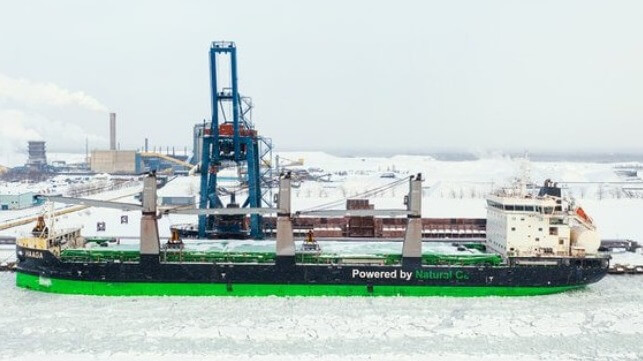ESL Shipping is First Customer for Sweden’s Botnia Hydrogen Project

ESL Shipping, a leading carrier of dry bulk cargoes in the Baltic region, is becoming the first customer for the Botnia Link H2 hydrogen project. The shipping company said that it will become a stakeholder in the project as the next step in its efforts to decarbonize its operations.
BotH?nia was launched in April 2021 as an international initiative for building a large-scale hydrogen economy around the Gulf of Bothnia and the Baltic Sea. It serves as an umbrella brand and collaboration platform for hydrogen-related initiatives. Led by CLIC Innovation in Finland, it will be used for facilitating communication between projects and promoting hydrogen-related technology and production in the area.
One of the first projects launched under the umbrella organization is Botnia Link H2, a joint project between energy company Uniper, ABB, Luleå Energi, and the Port of Luleå located on the Gulf of Bothnia in northern Sweden. The plan is to build a large-scale electrolysis plant that would mainly supply the marine sector with fossil-free hydrogen but could also be used for other industrial companies. In addition to hydrogen production, other projects are focusing on developing an infrastructure for storage and distribution in the area around the Port of Luleå. Other companies have announced plans to develop industrial operations including a fossil-free green steel plant at Luleå.
By joining the project, ESL Shipping becomes the first customer-side stakeholder in Botnia Link H2. According to the companies, the entire stakeholder value chain is now covered with ESL Shipping on board.
"The technology is evolving fast while the number of hydrogen applications is also growing. With Botnia Link H2 we want to create a hub that can deliver hydrogen directly where it’s needed. The Port of Luleå was an obvious choice and it’s tremendous that our first customer partner is a shipping company,” said Göran Carlsson, acting CEO of the Port of Luleå.
ESL carries over 5.5 million tons of dry bulk cargo in and out of Luleå every year, providing a key transport link to Europe for industries in the Norrland region. The company highlights that it has already invested over EUR 200 million towards its ultimate goal to offer 100 percent fossil-free shipping solutions. The combined fleet of ESL Shipping and Sweden’s AtoB@C Shipping which they acquired in 2018, currently consists of 48 vessels with cargo capacity ranging from 3,000 to 56,000 dwt and a total deadweight capacity of 456,000 tons.

that matters most
Get the latest maritime news delivered to your inbox daily.
"Tackling climate change is very urgent, especially given the sensitivity of our home waters in the Baltic Sea. Along with our customers and partners, we have a responsibility to do what we can to turn the tide. Industrial partnerships like Botnia Link H2 are key to achieving real change. We very much look forward to participating in developing a much-needed source of fossil-free marine fuel,” said ESL Shipping’s Managing Director Mikki Koskinen.
ESL in 2018 launched two innovative LNG-fueled bulkers that the company calls the most environmentally friendly bulk carriers in the world. Last year, AtoB@C Shipping AB, a Swedish subsidiary of ESL Shipping, contracted to build six new energy-efficient hybrid-electric vessels in India. The vessels will be 5,350 dwt and will enter service beginning in the third quarter of 2023. Designed with batteries, the onshore electricity solution and the hybrid electric will allow the ships to operate completely emission-free while in port. They will also arrive and leave the port with only electric power.
